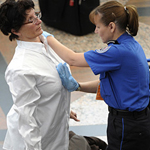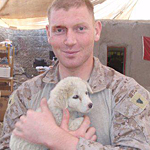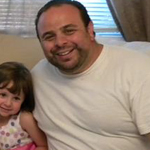The Rutherford Institute
Key Cases
Since 1982, The Rutherford Institute has defended the constitutional rights of thousands of people. Many of these cases involved the defense of parents' and students' rights, free speech rights, and privacy rights. Most cases were settled out of court, some were fought in courtrooms across the country, and several were appealed all the way to the U.S. Supreme Court. No matter what legal question was involved or how much attention the case received, each case has been equally important. As John W. Whitehead, president of The Rutherford Institute, has said, "All freedoms hang together. To defend one constitutional freedom is to defend them all, and to defend one person's constitutional rights is to defend those rights for everyone." The following is a sampling of recent and ongoing key cases in The Rutherford Institute's 20-year history.
| | Brandon RaubBrandon Raub, a former Marine who has served tours in Iraq and Afghanistan, was detained by FBI agents and police officers at his home in Chesterfield County based upon the nature of content posted to his Facebook page in recent months. Rutherford Institute attorneys are challenging Raub's arrest and detention on the grounds that the detainment order was procedurally improper, the result of an unlawful detention, and was based entirely on statements made by Raub that constitute protected free speech under the First Amendment. Click here to read more.
|
| | Michael SalmanThe Rutherford Institute has come to the defense of a Phoenix man who is serving a 60-day jail sentence and was fined more than $12,000 for using his private residential property to host a weekly Bible study, allegedly in violation of the City of Phoenix's building codes. In coming to the defense of Michael Salman, Rutherford Institute attorneys are challenging the legality of Salman's imprisonment as a violation of his First Amendment right to religious freedom and assembly. Click here to read more.
|
 | The TSAIn an attempt to secure American air travel, the Transportation Security Administration (TSA) has implemented an intrusive policy of scanning travelers with Whole Body Imaging (WBI) devices which allow them to observe an image of passengers' nude bodies to search for restricted items. If a traveler chooses to opt-out of this security measure, he is subjected to an invasive pat-down. The TSA whole body scanners are indicative of a larger climate of increased surveillance and policing directed toward innocent American citizens. Click here to read more about The Rutherford Institute's efforts to combat these unjust security procedures. |



No comments:
Post a Comment